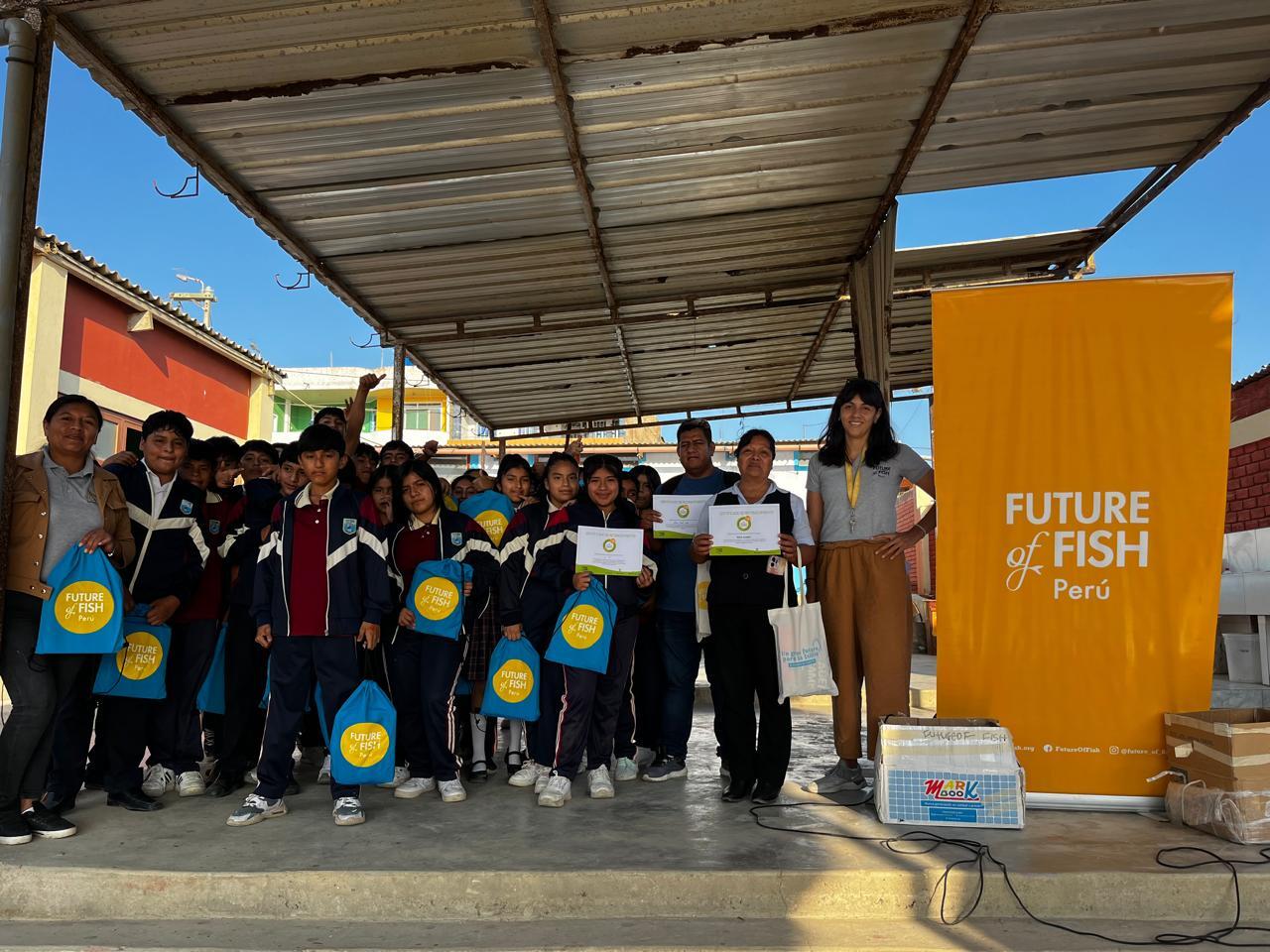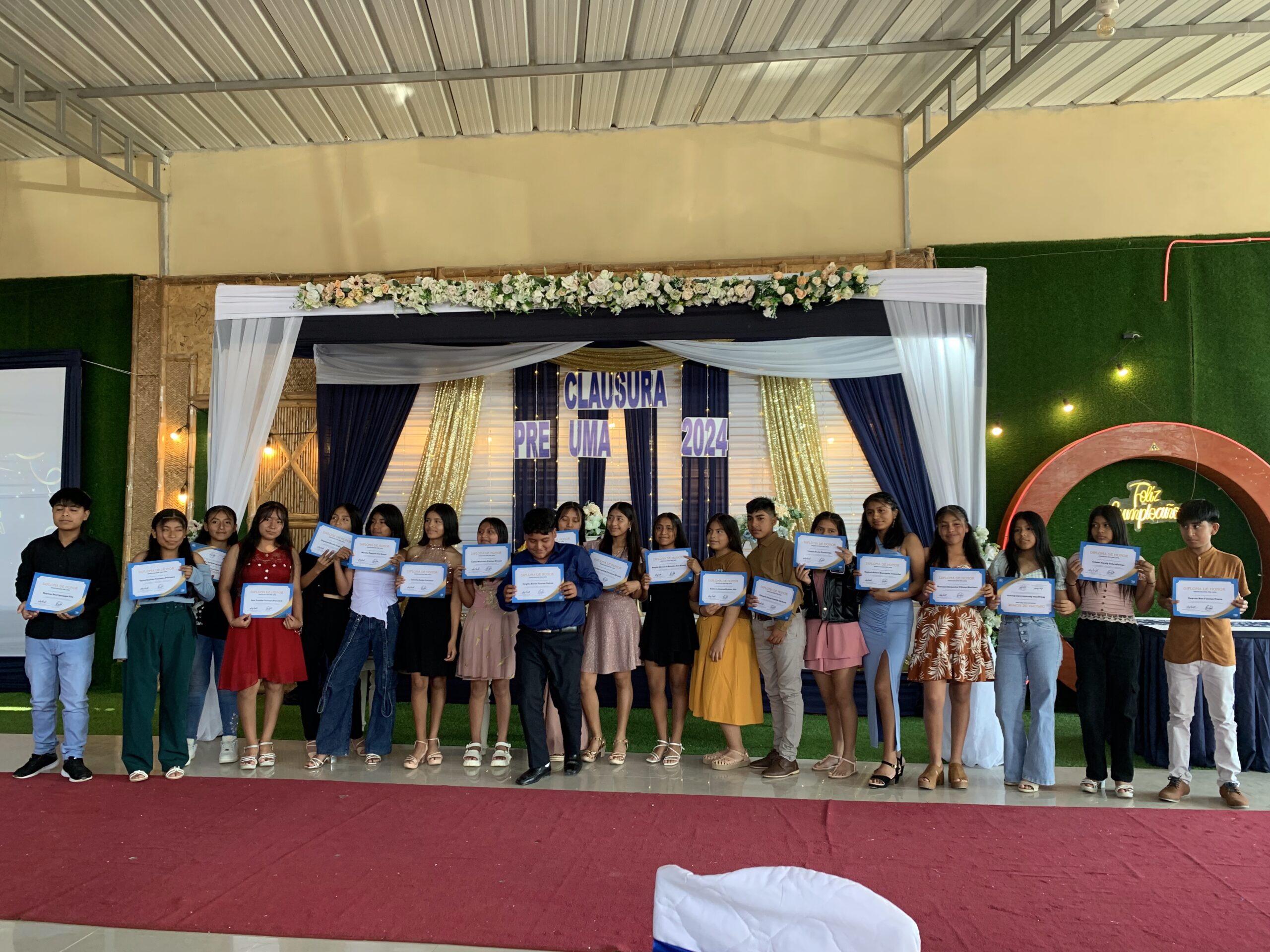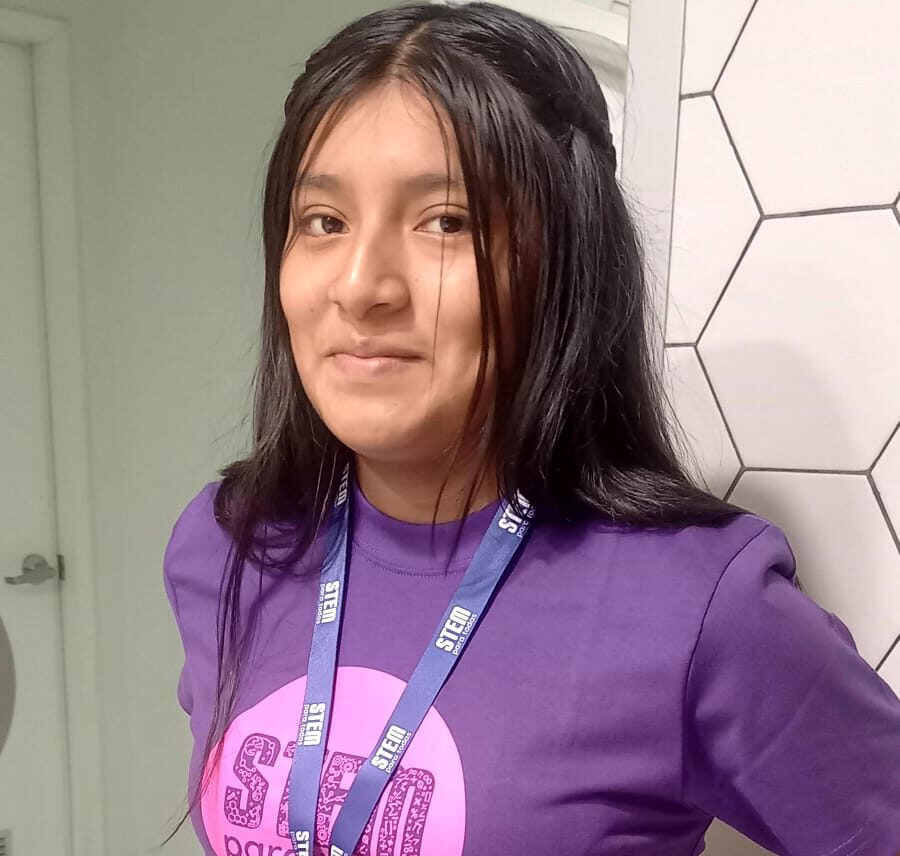
Written by Alejandra Cárdenas Huerto – Community Engagement Manager
Education is often viewed as the key to transforming lives and nations, while at the same time being held responsible for many of today’s social failures. It is empowering when present, but limiting in its absence. On a daily basis, it is understood as access to basic schooling (primary and secondary), and in some cases, higher education. Access to education is crucial for the sustainable development of communities in Peru, yet it continues to face significant gaps and inequalities—especially in communities where women face significant barriers.
The town of La Islilla, in Paita, Peru, is a fishing village where artisanal fishing is preserved as a tradition passed down through generations. It has a population of around 5,000 inhabitants, a large percentage of whom are of school age. This community relies heavily on artisanal fishing as its main source of income, with over 90% of men working in this traditionally male-dominated field. Women, on the other hand, often take on caregiving roles, making their contributions less visible as they handle domestic tasks like cooking and washing. From an early age, these roles are adopted due to limited opportunities in coastal communities and entrenched cultural norms. Both men and women often leave school early to meet expectations of going to sea or starting a family, with women disproportionately affected and facing fewer opportunities for personal or professional growth.
Dependence on marine resources is increasingly precarious due to climate change. We face a crisis of declining marine resources, vital for both daily sustenance and income. Extreme weather events like heavy rains and droughts worsen the situation. Coupled with multidimensional poverty, this creates a critical scenario for communities reliant on fishing. It is urgent to diversify opportunities in coastal areas, promote sustainable alternatives, and enhance community resilience by reducing dependence on marine resources.
Future of Fish collaborates with young leaders in La Islilla to inspire them to envision their futures. We facilitate opportunities by promoting ancestral knowledge and providing alternatives for personal and economic development.

Inspired by Freire’s vision of education as a path to autonomy, we empower children, adolescents, and adults to become change agents within their community, fostering personal growth and responsible environmental stewardship. This approach supports a just and resilient future. We’ve realized that education is the most powerful catalyst for holistic change in coastal communities like La Islilla.
We implemented educational programs to develop socio-emotional skills and improve access to information, such as “Talento Fish: Opportunities to Grow.” In collaboration with Pronabec and the University of Piura, we shared information on scholarship opportunities, addressing the economic barriers that limit access to higher education.
We then faced a new challenge: the quality of education. In Peru, quality education is crucial for reducing poverty and inequality, equipping students with skills for a globalized world (World Bank, 2007). In response, we launched “Generación UMA” in 2023, a pre-university program in La Islilla for high-potential students. In its first year, 10 out of 20 applicants were selected, with one gaining admission to the National University of Piura, inspiring others. Now, five students are applying for Beca 18, and two girls and two boys are applying for scholarships to the University of Piura (UDEP). This highlights the importance of leadership role models in inspiring more teens to change their family history and pursue their dreams.
We’ve learned that young people need not only opportunities but also support and role models to motivate them.

In 2023, we mentored Ariana Fiestas, who applied for the “STEMParaTodas” camp organized by the Pontifical Catholic University of Peru (PUCP) to include girls and women in science and technology. She was selected and spent an intensive week with girls from various regions. Ariana returned to La Islilla with new experiences, inspiring her peers to dream big and highlighting the impact of achievements by children in La Islilla. In 2024, five girls from La Islilla applied to the same program. Ariana proved that if one can do it, others can too.
Quality education and access to development opportunities in communities like La Islilla are crucial for reducing inequality and building a more equitable society. While fishing remains the main economic activity and faces a crisis due to overfishing and climate change, education provides youth with the chance to expand their options and diversify income. It empowers them to pursue dreams beyond social obligations. With the right tools and resources, they can freely choose their paths. This also impacts the fishing sector—fewer people entering the trade can alleviate pressure on overexploited resources and industry at risk. Our goal is to foster generational transformation and reduce dependency on artisanal fishing through the creation of new opportunities for young women and men.
Through comprehensive educational programs, we strive to provide access to resources and training, along with consistent mentorship and the development of local leadership and role models. These role models demonstrate that dreams can be achieved, regardless of contextual limitations.
—
References:
- World Bank. (2007). For a quality education in Peru: standards, accountability, and capacity building.
[https://documents1.worldbank.org/curated/zh/316741468298153073/pdf/405570SPANISH0Educacion1de1calidad12007.pdf](https://documents1.worldbank.org/curated/zh/316741468298153073/pdf/405570SPANISH0Educacion1de1calidad12007.pdf).
2. Freire, P. (1970). Pedagogy of the Oppressed. Siglo XXI Editores.
Published Jun 06, 2025




